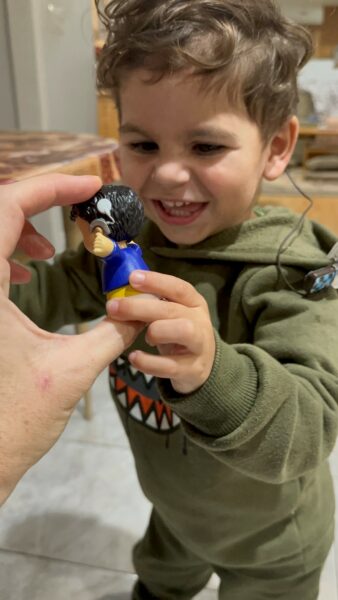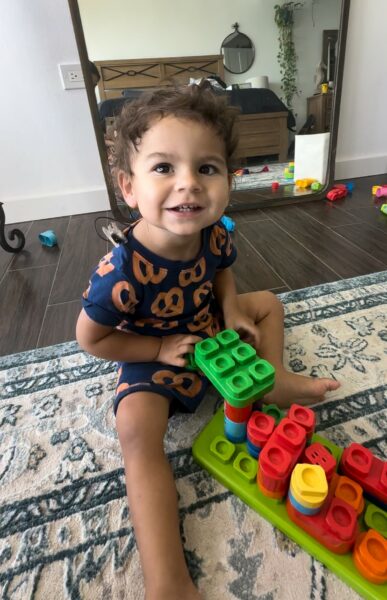Diagnosed as a small boy in Puerto Rico with the rare disease - Mitchell Syndrome, Augustine’s parents were scared to learn that their son also lost his hearing. They were advised that he was a candidate for cochlear implants and were excited to have a path forward. The family has embraced his life with cochlear implants and the joy he now receives from talking, listening to music and dancing. More about his journey overcoming this rare disease below:
“We welcomed our son Augustine in mid-2022. He was our first son after two daughters and we were completely enamored with him and still are. He was born hearing, healthy and ready for an active life at our home in Puerto Rico.
A couple months in we realized he had more health questions than we originally thought which led us on a journey to diagnosis within the rare disease community. He was diagnosed with Mitchell Syndrome and became just one of 30 patients in the world to ever be diagnosed.
 A world of uncertainty…but a path forward
A world of uncertainty…but a path forward
While all of this was scary, learning he had become deaf during this time was even scarier. I had never known anyone deaf, with hearing devices and didn’t know sign language. We were thrown into a very uncertain world trying desperately to understand all of it and do the best we could for our son.
Being told that he may have an option to regain hearing using cochlear implants1 was an amazing option I didn’t even know existed. His surgeon wasn’t certain they would work because it was the first time he had worked with this specific syndrome. But we were committed to giving him options to both learn American Sign Language (ASL) and also spoken language.
I can’t say enough how thankful I am for those options and that we chose to give him a cochlear implant. Augustine has been activated and hearing with his cochlear implant for seven months now and to this day every time we put on his sound processor, he gives us the biggest smile. He is doing incredibly well with developing spoken language and ASL. I have never felt more joy than watching him dance to music. Without fail, any time there is music, he is dancing to the beat with a gigantic smile.
 Augustine’s life and experience after cochlear implants
Augustine’s life and experience after cochlear implants
He’s starting his first words and has progressed to saying every combination of consonants and vowels which shows us that he’s hearing all of those combinations well. Having cochlear implants has allowed him to engage in the world around him that he wouldn’t be able to without them. He hears his sisters coming home from school and shrieks with joy. He looks up at airplanes and plays with musical instruments. For all that he has been through in his short life, I have witnessed the joy that has come from hearing and interacting with the world around him and all the fun sounds within it.
He has developed a little relationship with his new ‘ears’ that also brings comfort to know he enjoys them. He will point to them when he wakes up to communicate he wants them. When they fall off he attempts to try to put them back on. He puts them in his toy bus and drives them around. In all of the loss and uncertainty that comes with rare disease and medical complexity, we’re extremely grateful for Cochlear and being given back something that was lost. He will be able to develop spoken language, as well as dance to his favorite songs.”
Since the time this blog was written Augustine has actually received a second cochlear implant, going bilateral in 2024. He is doing very well in auditory-verbal therapy (AVT) and is capable of saying up to 55 words, which is on track for his age. His mom states “It has been so fun to watch his personality blossom and to watch him enjoy music and having fun with his two sisters.”
To see a viral video on social media of Augustine watch here, and if your child has experienced hearing loss, even as a result of a rare disease like Mitchell Syndrome, cochlear implants may be able to help. To learn about your options click here.
- In the United States, the Cochlear Nucleus 24 cochlear implant system is intended for use in children 9 months to 24 months of age who have bilateral profound sensorineural hearing loss and demonstrate limited benefit from appropriate bilateral hearing aids. Children 2 years of age or older may demonstrate severe to profound hearing loss bilaterally.